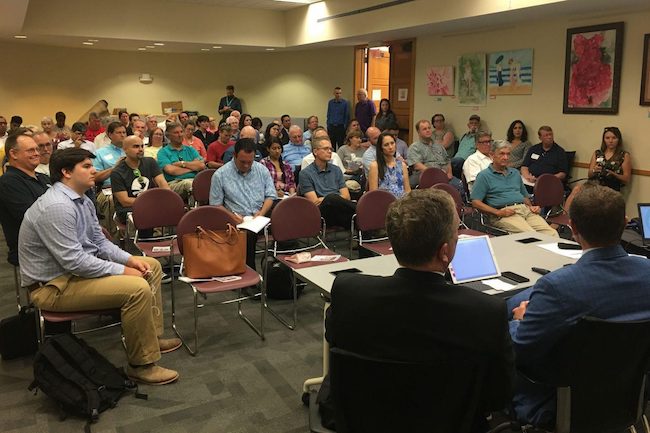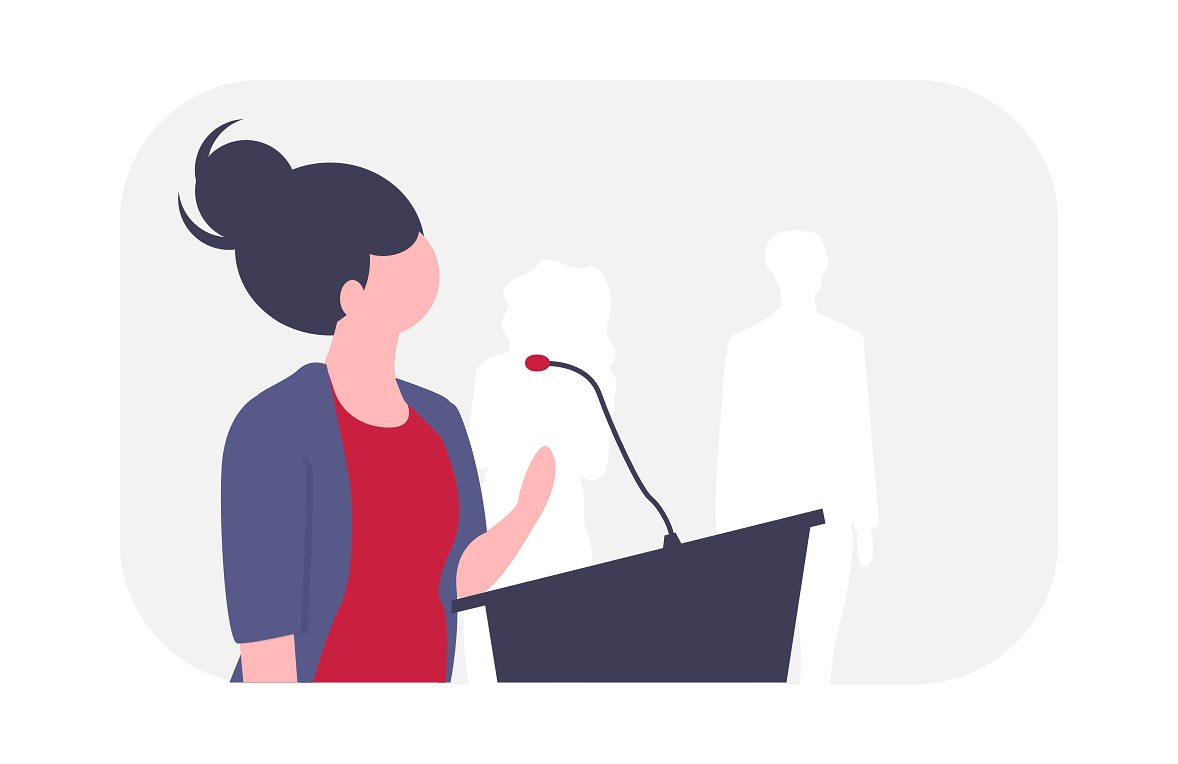In my interview with Brian Phillips of the Texas Public Policy Foundation, we covered a lot of ground, but one of the last things he shared stuck in my mind. It’s something simple and something you’ve heard before, but some simple and oft-repeated things warrant yet more repeating when they are also willfully ignored. Phillips said:
One of the things I tell my staff all the time—or at least the analysts around here—is “there’s no such thing as the general public.” We used to ask all of our analysts—they would write an op-ed or they would have an idea for an op-ed or they’d write something and I’m getting through it—and I’m like, “Who’s this for? Who is our audience here?”
“Oh, it’s for the general public.”
I’m like, “Well, if you’re writing for everyone, you’re writing for no one.”
How is Phillips solving this problem with his team? They’re leaving the office and meeting their audience.

Texas Public Policy Foundation has been taking their show on the road, touring the great state of Texas meeting with 100 or 200 people at a time. This gives them a platform to share their message about good public policy, but more importantly, to listen to the people they meet. Phillips highlighted the importance of this early in our discussion:
You can talk about property tax all you want or spending or budget, but to actually hear somebody talk about the issues they’re having—between the property taxes going up every year and making it difficult for them to save for the future or pay for college or even put food on the table—those are really, really important stories that we as policymakers or even researchers need to hear.
How do Phillips and his team know who their audience is? Because they’ve looked them in the face and heard their concerns.
Again, is this wisdom anything new? No, but so few people execute on this truth. You have to know your audience, but it’s easier to stay in the office and write op-eds for other policy wonks.
By listening to his audience, Phillips is also ensuring his message is being heard. It’s counterintuitive to some, but listening shows that you respect your audience. When people feel respected, they’re more open to listening. As Phillips put it:
Going into those communities, it says that your voice is important, your feedback is important, this community is important.
TPPF is giving so much deference to the audience they are trading the typical policy wonk presentation for a town-hall-style Q&A. Each presenter is limited to 10 minutes of speaking time and allowed only 3 slides as part of their presentation. 30 to 40 minutes of each event is reserved for answering questions from the audience.
That Q&A helps to expose what’s working and what’s not working in the presentations. During their post-game analysis of each event, TPPF staff talk about what could have gone better, how the message can be shifted, how they can come at an issue from a better angle to get at the heart of what matters to people.
Phillips says history working in political campaigns has helped him be frank in his feedback:
You identify stories that work and that don’t work. I’ve been doing communications and critiquing candidates and things like that for a long time. So, I don’t have any problem going up to people and saying, “Hey, that story didn’t work,” or “When you said it this way, I think people are misinterpreting what you mean. Let’s fix it.”
Along with this feedback at the ground-level, Phillips and TPPF are making use of polling to get a macro sense of the public policy debate in Texas. This helps them avoid costly errors, like pushing a message to an audience that you might assume is sympathetic to your cause, but doesn’t care about the issue as much as another audience might:
We found that on the property tax issue, the urban centers were really where that issue resonated, and then not so much in the rural areas. So, don’t spend a lot of money going and talking to middle of nowhere West Texas about property tax because they just don’t think it’s an issue. Go into urban Austin or Houston and have that issue. If we’re going to do an event out there in West Texas, don’t bring your property tax guy. Bring your education guy or bring somebody to talk about property rights or something like that because they really care about these issues.
So while polling is costly—Phillips quoted a figure of $1500 per questions for state-wide issue polls—it’s also expensive to give the wrong message to the wrong message over and over again.
Not using polling before you launch a major public policy campaign because you “can’t afford it” seems to make as much sense as not using an architect/engineer before you build a building because you “can’t afford it.” You’re saving money in the near term only to have a project fall apart in the long term. The only difference between a policy campaign and a building is that it’s painfully obvious when a building has fallen apart. Builders can’t hide behind lame excuses. Neither should you.
If cost is really a concern, Phillips suggests using Facebook as a quick way to get feedback and help your audience guide your messaging:
It’s a really cheap and dirty way to test engagement over, especially because you can change the message so quickly. If something is not working within the first two or three or four hours, and you’re not having at least your typical results on your post, then you can change it out.
Based on my conversation with Brian Phillips here are some key takeaways for public policy organizations:
- Writing without an audience in mind is a waste of time
- Take your message to your audience in-person wherever possible
- Listen to your audience and adjust your messaging based on what you hear
- Use polling or some other form of testing as a tool to help you launch a campaign and adjust as you go
Whether you hold a forum, do an AMA on Reddit, post question to people on Facebook or Twitter, or conduct a national poll, you need to be asking your audience questions that will help you hone your message. If you’re not doing this, if you’re only talking at people rather than listening to them and adjusting based on feedback, you can be as right as right can be on policy and your message will go nowhere.
Use Brian Phillips and the Texas Public Policy Foundation as your example and start engaging with your audience today.
